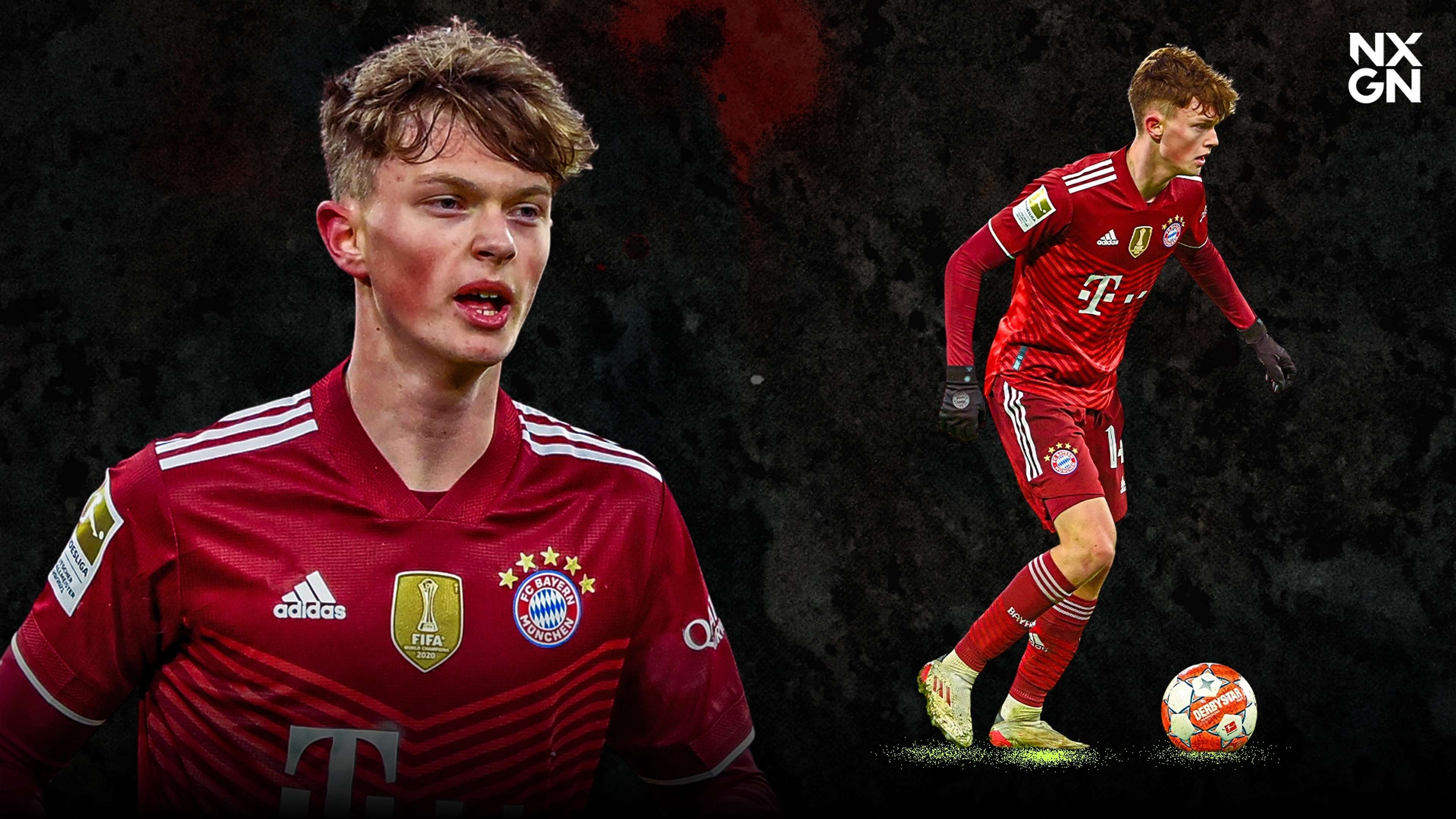Desperate times call for desperate measures, and when Bayern Munich were hit by a Covid-19 outbreak just days before the resumption of the Bundesliga season following the winter break, emergency plans needed to be drawn up.
A number of the club's talented academy stars were promoted to the first-team squad, but that was not enough to fill out the bench sufficiently for the trip to Borussia Monchengladbach.
So, with resources close to home exhausted, Bayern made a call to the German Football Association (DFB) to request that midfield duo Paul Wanner and Arijon Ibrahimovic be put on the first plane home from Marbella, where they were part of a Germany Under-17s training camp.
The two 16-year-olds were duly rushed back from Spain, but given the short notice and their lack of experience of even reserve-team football, it was felt unlikely that either would feature for Julian Nagelsmann's side.
For Ibrahimovic that was the case, as he remained on the bench throughout the 90 minutes at Borussia-Park.
Next Match
But for Wanner, the bad luck suffered by those who tested positive for coronavirus provided him with the opportunity to not just make history, but also change the trajectory of his career forever.
Wanner's 15-minute cameo off the bench saw him become the youngest player in Bayern Munich history at the age of 16 years and 15 days, and the second-youngest Bundesliga debutant behind only Borussia Dortmund striker Youssoufa Moukoko.
For many players of his age, that would have been the last fans saw of him for a couple of years, returned to the youth ranks to further develop his game.
But Nagelsmann has been mightily impressed by the attacking midfielder, and insisted he remain part of the senior squad, with Wanner now having made two further substitute appearances in Bayern's subsequent matches.
For those who saw Wanner in action on his debut, that should not come as a surprise. From the moment he entered the pitch he looked assured, with his first action in the game seeing him control a pass from Benjamin Pavard on the right-hand side before setting off on a dribble that left two far more seasoned defenders in his wake.
The teenager regularly demanded possession from his team-mates as they looked for a way to rescue a point after falling 2-1 behind, and it was he who started the move that almost led to a late equaliser from Robert Lewandowski.
"He can do everything... He's an incredible talent," was Nagelsmann's assessment in his post-match press conference of a player who is already being likened to Mesut Ozil due to his playmaking abilities.
Check out football's best wonderkids with NXGN:
"He has a very tight and dynamic ball control, with which he can completely change game situations," Germany U17s manager, Marc-Patrick Meister, tells GOAL and SPOX of Wanner, whose forward-thinking approach is what stands him out from the crowd among creative midfielders.
A superb passer and dribbler for his age, Wanner's first thought is always to keep the ball moving towards the opposition's goal, with his speed of thought and execution marking him out as a special talent.
For Germany's U17s he averages a goal or assist every 77.6 minutes from his seven caps, while he also has four direct goal contributions to his name for Bayern's U19s this season.
 Getty/GOAL
Getty/GOAL"Paul is a very agile attacking player who has already played in all attacking midfield positions," Meister explains, with that likely to help Wanner further integrate himself into the Bayern team in the coming years.
His natural position is as a No.10, but with Thomas Muller showing no signs of slowing down anytime soon, opportunities to play that role are likely to be limited for Wanner. As such, the experience he has picked up from playing out wide means that he can be a versatile option for Nagelsmann, even if breaking into one of the best teams in world football is quite the challenge for a player so young.
"He's incredibly ambitious. The harder the challenge, the better his performances - he's really someone who grows with his tasks," Bayern Munich academy coach Alex Moj told The Athletic in a recent interview, and Meister agrees, saying that Wanner's "will to learn" will help him continue to improve.
One area of Wanner's game that has been developed since he arrived at Bayern from FV Ravensburg in 2018 is his defensive ability, and his willingness to work hard to win back possession via counter-pressing.
Though he is not physically imposing as yet, Wanner has worked hard to make himself a handful for opponents both with and without the ball, and Meister is backing him to make the changes needed to thrive in the men's game.
"Players of his age are confronted with things in a very short time that others have more time to understand and adapt to," he says. "The pace of the game, for example, is much faster and the time for a decision on the ball is much shorter.
"If he [Wanner] stays healthy, he can adapt and achieve a lot with the skills he has."
The son of former footballer, Klaus, who played the majority of his career in Austria, Wanner certainly has a good advisor in his corner, while he shares an agent with fellow Bayern teenager Jamal Musiala.
His representatives are, GOAL and SPOX can confirm, working on a new contract for their client, as Wanner's current deal is set to run out at the end of the 2021-22 season, with clubs from around Germany and elsewhere in Europe having begun queuing up to talk to the youngster should an agreement on fresh terms not be reached.
The issue that needs most ironing out is the plan for Wanner going forward, and whether a loan would make sense in the near future to ensure he earns more experience of the senior game should opportunities at Bayern dry up in the coming months.
Either way, Wanner looks primed for a long and successful career towards the top of the German game.
Necessity is, after all, the mother of invention, and in Bayern's case, their desperation to fill out their virus-ridden squad may well have helped them unearth a real gem.
For more on the world's best young ballers, follow NXGN on Instagram and TikTok.


